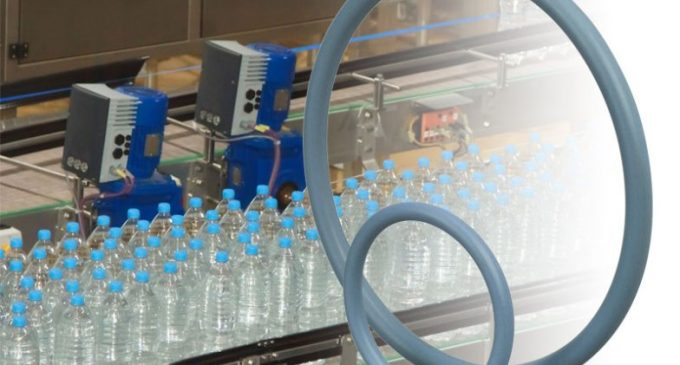Freudenberg Seals Help Minimise Flavour Transfer Problems

Beverage bottlers know the problem of flavour transfer all too well. If the wrong elastomer is used, a new batch can taste like the previous one, even though the facilities were cleaned between batches. The problem being the flavour is transferred from the beverage to the sealing material and then, far worse, back to the (new) beverage. With the right choice of sealing material from Freudenberg Sealing Technologies, this problem can be minimised or avoided completely.
From flavoured waters to fruit concentrates – the number of beverages on the market is immense. The major difficulty in beverage production is the rapid changeover from one product to the next, which makes well thought-out process optimisation and batch sequences indispensable. This involves not only efficient planning of the bottling process, but also guaranteeing the desired taste of the individual batches. Freudenberg Sealing Technologies can provide sealing materials optimally suited to the process media, to help prevent unnecessary downtimes caused by constantly changing seals. These products are available from Dichtomatik UK, the exclusive provider for Freudenberg’s food and beverage related products in the UK.
The different flavourings consist of a variety of aromatics, whose effect on elastomers has not been researched in depth to date. Depending on the composition and chemical characteristics of these individual aromatics and the mixture ratios, the resistance of the elastomer to these substances, as well as its absorption and release rates with regard to them, can be assessed; the assessments can in turn be reinforced by the results of the exposure tests.
In the processing industry, elastomers should ideally be able to withstand corrosive cleaning media, be resistant to all products offered by the bottler in question, and offer a long service life – criteria some perfluoroelastomer products certainly fulfil. These sealing compounds are used in the chemical industry for applications where, for example, concentrated corrosive chemicals are used. In contrast, the food and beverage industry primarily uses cleaning media that are diluted and can therefore be satisfactorily withstood by more economical materials.
Investigations into the chemical resistance in CIP/SIP (Cleaning-in-Place/
The Achilles’ heel of EPDM materials however, is their poor resistance to fatty media, which can cause rapid swelling. The alternative material for the production of non-polar products is Fluoroprene XP 41, a material suitable for the entire processing industry. This combines very good performance in cleaning media with unsurpassed resistance to oils and fats, remaining stable in temperatures ranging from -15 to +200°C.
Whatever the beverage being bottled, seals from Freudenberg Sealing Technologies help to minimise or even completely avoid flavour transfer between batches.

































